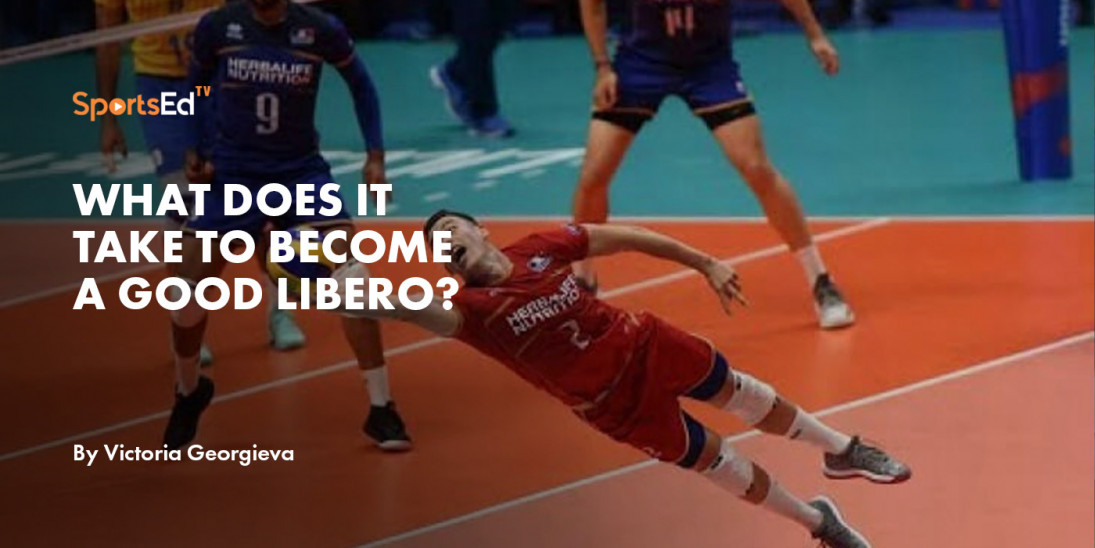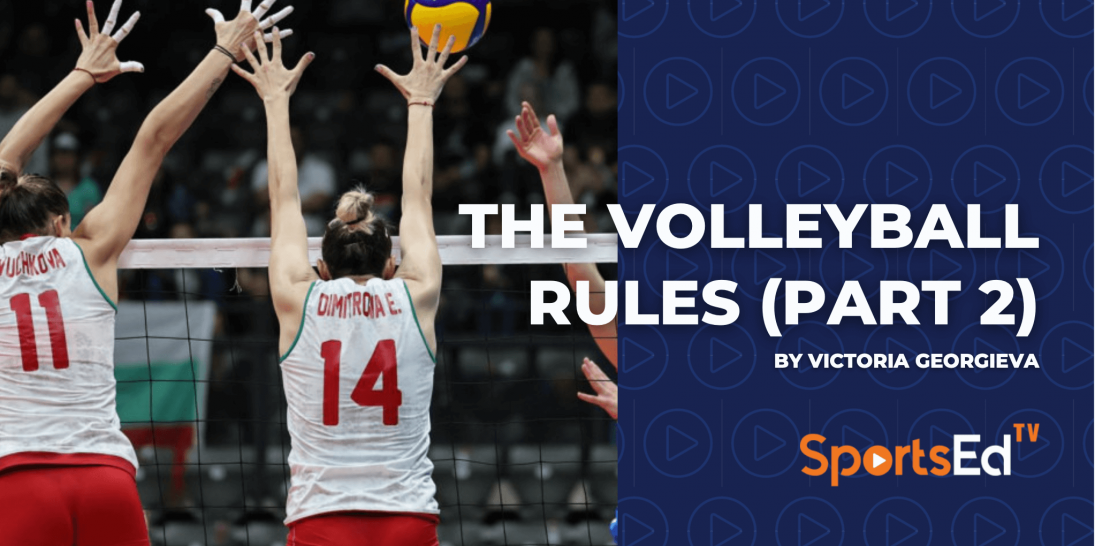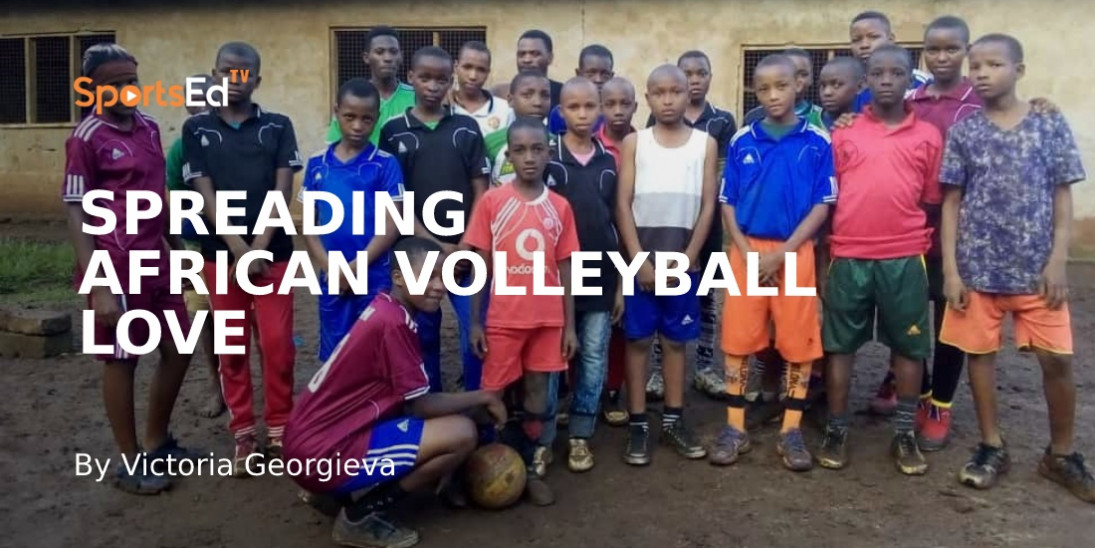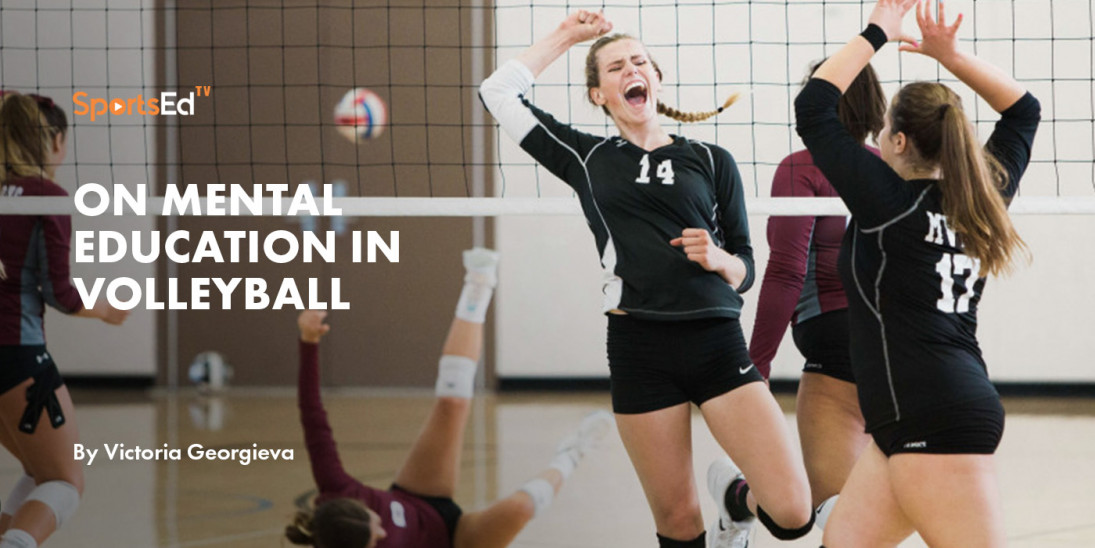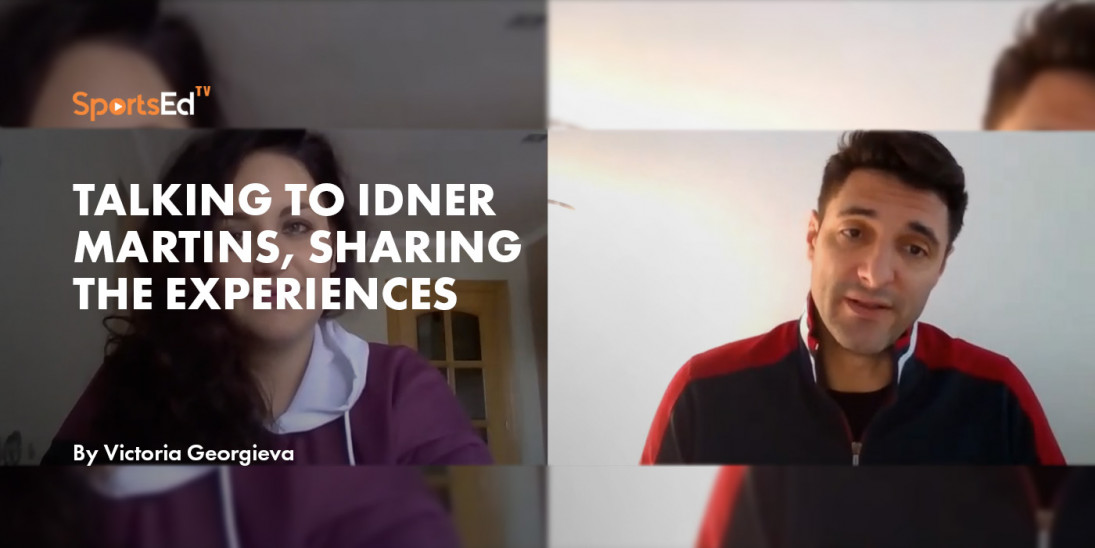Volleyball
Welcome and thanks for visiting...

Bulgarian Volleyball Legend Nikolay Ivanov on Why Being a Setter Is The Most Important Role on The Court
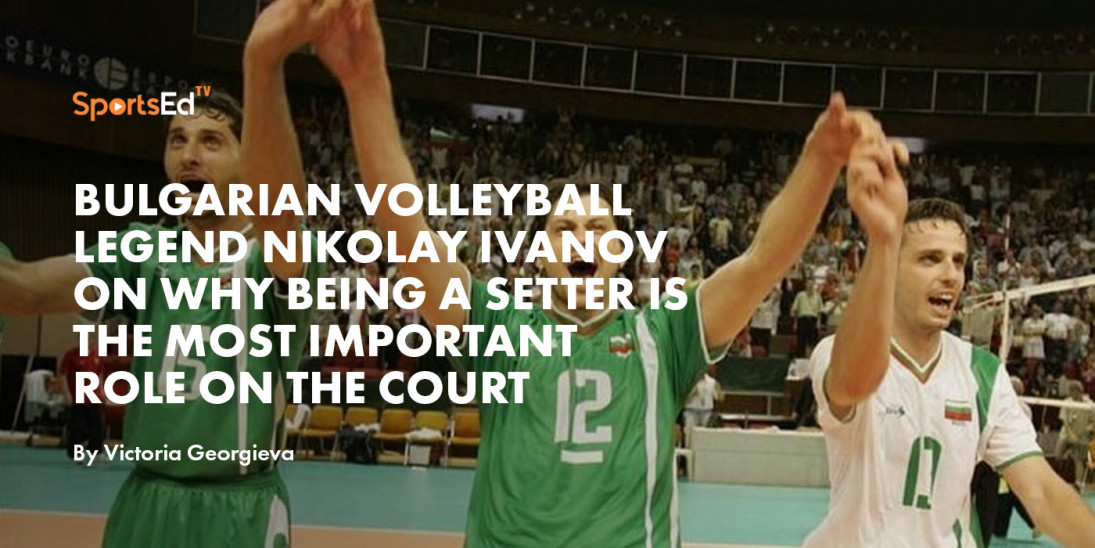
Do you remember the moment when your “love story” with your favourite sport started?
I remember mine very well. Or at least I remember what I felt.
I don’t recall the exact date and time, but it seems that if I close my eyes right now, in 2021, I will be transported instantly to that hot summer day, around 18 years ago, in the living room of my home. My mum would switch on the TV to watch a match of the Bulgarian volleyball team, men, and I would join her together with my father.
What I will see next, will definitely change my life.
I will see a dynamic game, and I will see the Bulgarian team winning. I will look at the screen and will not be able to stop watching. I will see some fans, too, and will almost feel there.
And I would see one man that the camera was constantly showing.
Later I will learn his name. Nikolay Ivanov. The captain of the Bulgarian national team and its setter.
During the years, I would continue watching him, playing in Italy, Turkey, Russia, Poland, leading his teams towards victories, and bringing joy to the Bulgarian fans, together with his teammates.
I will even watch him play live once or twice, one of those times being an unforgettable semi-final game for CEV Cup in my hometown.
And here I am. Years later, having a quite long conversation about volleyball with a true legend.
If you tell the girl watching the TV 18 years ago that this would be possible, most probably she wouldn’t believe you. But today’s Victoria knows it is true, because once having Volleyball in your life, everything is possible and as Nikolay says “Volleyball opens up your world and has the power to change the course of your life”.
True that, as people say, and now it is time to delve into the conversation with Ivanov.
How to become a good setter and what are the most important skills for a captain? At what age should trainings start and what is the process of acquiring new skills?
Read on the answers in the special interview Ivanov gave for SportsEdTV.
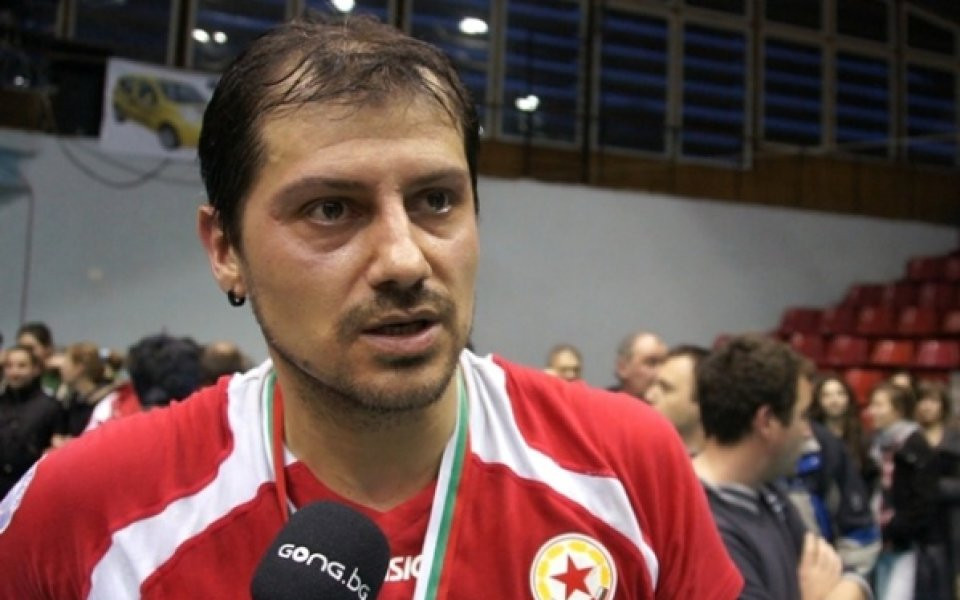
SportsEdTV: Hi Niki! How are you? What are you up to?
Nikolay Ivanov: I am good, thank you. In 2019, I’ve finished my project with the Romanian volleyball team and I haven’t done any coaching since then. You know, the pandemic came and changed our lives. In the past year, I’ve paid more attention to my family, to my hobbies, I am working on my site, VolleyComment, and creating content for my podcast on the tendencies of European and World volleyball.
SportsEdTV: So, what is happening in the volleyball? What have you noticed that has changed in the past years?
Nikolay Ivanov: In the beginning of the century, you could tell that there was a clearer difference between the sports systems of Europe, Asia, and North America. What happened in the past 10-15 years, for good or for bad, is that we had a unification of the playing systems. All around the globe, all the teams use more or less the same methodologies of work. 95-98% of the teams, both on club and national level, use two systems for tactical preparation, the same video analysis systems.
What makes the difference nowadays, with teams having the same starting point, are the personal qualities of the player. It all comes down to their personal motivation and the work conditions.
SportsEdTV: How did you come to these conclusions?
Nikolay Ivanov: If we watch and analyse some matches, let’s say from the Asian leagues or European matches, and we don’t pay attention to the club’s name, we will see that all of the players repeat the same on-court movements. Then again, the quality of your move on the court and what is the result of it, this is a matter of individual qualities.
SportsEdTV: How does this unification help to the players?
Nikolay Ivanov: This helps a lot when it comes to transfers of players and the adaptation period in the new team. A player needs two weeks to one month to adapt, to see how to adjust and start working with the setter. If all is in place with the physical preparation of the player, one moth should be enough to find the rhythm and to answer to the team’s requirements.
SportsEdTV: How was it in the past?
Nikolay Ivanov: I remember that in the 90s, the European teams were struggling when playing with Asian teams. Why? Because the Asian teams came from a closed society, they were using older and different from ours systems, with many combinations. In the beginning of a match, we would have problems with finding our play, but normally, after the first set, we would take the lead thanks to the better physical preparation.
The Italians, for example, applied a faster and clearer system of play in the 90s. In these years, the Russians counted mostly on their strong physics, spiking hard, etc, but they saw this wasn’t enough to achieve results, so they also started playing more tactically.
The Serbians showed up on the horizon in the 2000s, and you know, to date, they have good results. Bulgaria was also on the map, and still is – opponents should never underestimate this team.
A very good example is what happened in the Polish volleyball – in the 90s, they weren’t the thing they are now. But since the beginning of the century, they started to develop volleyball with clear policies, they started educating young players, put the focus on the technical part. And you see the results. They are the reigning world champions.
SportsEdTV: What is important for the development of the player then in light of this volleyball globalisation?
Nikolay Ivanov: Yes, we have this globalisation, but sports is sports, and it all starts with being very well technically prepared. Without technical excellence, you can’t build up on the tactics. The good technical skills give the player the confidence. Working with young athletes, I always say to them that they need to push hard on improving the technical part.
I know it might be boring for the player when I send them doing passes on the wall, aiming at one exact square... But this is very important for the further development of the player. If a player misses that part at the age of 14-17, it would be very difficult to compensate afterwards. I will give you an example. It is possible to start improving physically when you are 22, but it is much more difficult to start improving technically at this age if you don’t have the basis. To start applying tactics, you need to have both – to be in a good physical shape and to have good technical skills.
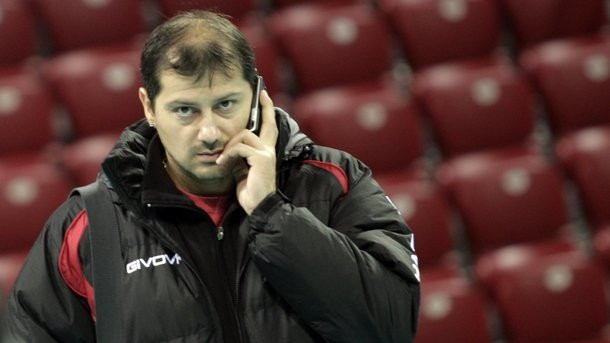
Photo credit: Sportal.bg
SportsEdTV: Talking about tactics, should kids be learning some tactics when starting training volleyball?
Nikolay Ivanov: In my opinion, when kids are just starting with the sport, they should go slowly with the tactics. They need to start building the understanding, but not going into details. Learning tactics should be a slow process, the same as in school. The first year we will learn the subject X, the next year – the subject Y. No need of hurrying up. Quality over quantity.
SportsEdTV: When is the right moment to start playing?
Nikolay Ivanov: Our lifestyle is different compared to what was before. Years ago, it wasn’t strange to take up on the sport at the age of 16 if you have the physical potential. In today’s world, we are always hurrying up. We want them (the kids) to learn fast, to become champions in juniors, to perform always well. This is something stressful for the kids, and doesn’t help them to develop to their full potential.
There are some studies showing that acceleration at younger age, has actually a negative impact on the talented kids. Acceleration leads to longer phase of amortization. So, what happens is that the kids that were making the difference in the junior leagues, burn out emotionally, mentally and sometimes physically. So, we need to be careful with that.
I started playing volleyball at the age of 9. However, it wasn’t volleyball as we know it. Of course, there was the ball, the net, the court. Nevertheless, it was in the format of games, of play, of enjoyment and excitement. No pressure.
So I believe, that even if kids start training at a very young age, we need to be careful with them. Even to the ones that we consider to be the talented ones. Especially to them. We need to take it slow, to help the kids start on building some physics, to get to know their bodies and movements on the court. After this, starting learning some of the elements in more detail comes naturally. If there are qualities and motivation, the development will come.
SportsEdTV: Talking about continuous development and the role of the expectations, what do you believe should be the approach if a team or a player is passing through a tough period?
Nikolay Ivanov: I will give you an example with Bulgaria. In 2019, the men’s team had failed at a very important Olympic qualification. Right after this, the players had to play at EuroVolley 2019. There were many high expectations on how the team will perform at Europe’s elite competition. And this put a lot of pressure to team. I believe that in such moments, when a team has failed to show their best, what is needed is, of course, a good analysis, but trying to blow off the steam, too. Start having smaller goals: “Ok, let’s win this set. Ok, let’s win two sets. Ok, let’s win the match”. Keep calm and don’t blame each other. This wouldn’t lead to any success.
I believe that we, in Europe, can learn a lot about this from the North Americans. I really like their philosophy. When they play, they really enjoy the action. They “read” the mistake, the loss in a different way. They don’t look for the guilty one. You can observe their behaviour during a match; in the most critical situation, they are able to keep the good spirit alive. Of course, it’s a matter of mentality; yet again, we can learn a lot from them.
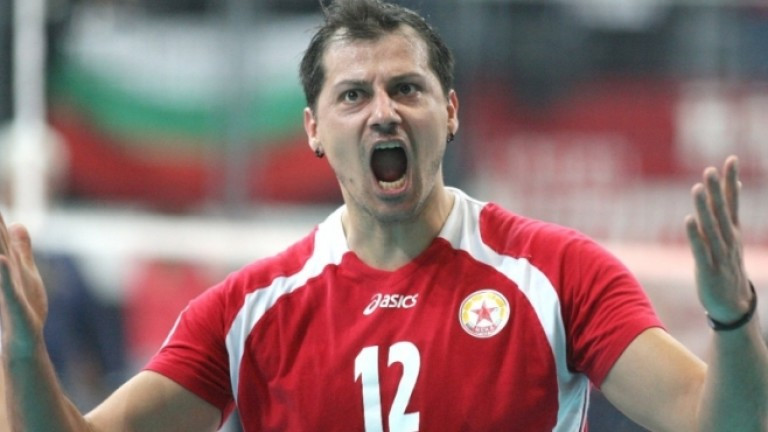
Photo credit: Facebook
SportsEdTV: Let’s talk about your career. How did you start with volleyball and why?
Nikolay Ivanov: As many other kids, I first started with soccer. My mother was against it. I changed to basketball, and I didn’t like it because of the coach. So, I started with volleyball.
I have never imagined that I would come to such heights, to play for so many years. I had been playing professionally until the age of 40, and I had the honour of playing with some of the most talented players around the world. I am so grateful to the destiny for these chances!
Growing up as a player, I was developing in another political system (Bulgaria was a socialist republic before 1989). When the democratic changes came, I was 17 years old, a teenager. Sports, in these difficult times of transition and new influences, helped me a lot. Voleyball had saved me. I have lost friends on the way because of new bad influences. For one or another reason, friends that had chosen the wrong path.
Volleyball was my treatment. My medicine and I highly recommend it.
This is what I tell to parents who are wondering if their children should start training at all.
“Ok, it is not necessary that your kid becomes a champion, a super star. If that’s the case, great! But beyond that, sports will prepare your kids for life itself. Sports will help your children to better face victories and losses. Because you should know how to rise up after having lost. And, as in volleyball, in life you will lose sometimes, too. Knowing how to face defeats, is fundamental quality.
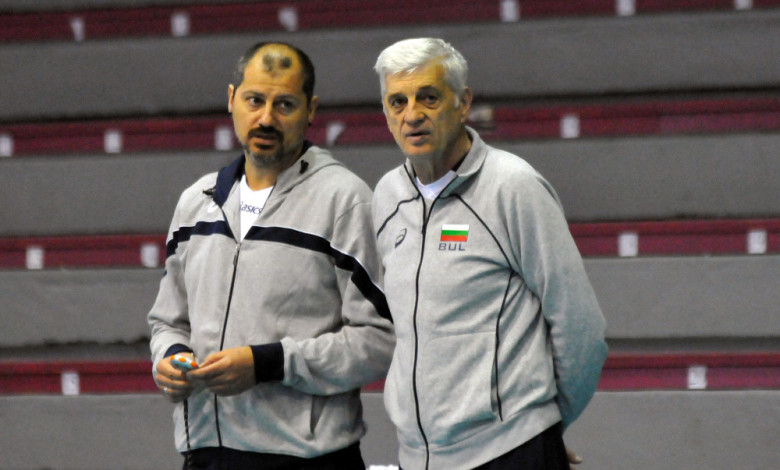
With Ivan Seferinov. Photo credit: sportal.bg
SportsEdTV: Why did you choose being a setter?
Nikolay Ivanov: I was a spiker until the age of 17, a good one. Ivan Seferinov, who was the coach of Bulgarian powerhouse CSKA at this time, had told me: “Look, you need to become a setter, or you can just grab your bag and go home.”
I was shocked, because at that time, I really believed that I can become a top spiker. Seferinov, however, obviously looking in perspective and thanks to his wide experience, had seen that if I want to become something big, I need to choose a different role. If I had continued playing as a spiker, I could have reached some medium level only. Setter was another story.
It was a difficult transformation; I had to put many, many efforts into becoming who I eventually became. But I was ambitious, I worked hard and I joined the junior national team as a setter. We won a bronze medal in Dubai ’89, World Championship, and this motivated me a lot, too.
SportsEdTV: What is the real role of the setter on the court?
Nikolay Ivanov: Oh, I can talk for days on the role of the setter, I have even written my thesis on this matter.
The setter is the hidden leader. He or she is the most important figure. If we go back in time, and check the teams that have reached the first places, we could see that their setters were always the best ones.
The setter is the person who “translates” the tactics on the court. This is the person who needs to be the best psychologist and “to feel” their colleagues. As a setter, you need to develop this quality, to see what is the current mood of the spiker, if they could take the responsibility of the important balls, to close the set, the match.
The outcome of the match depends a lot on the technical capabilities of the setter, on their current shape, and on their psychological resilience. Your spikers can be the phenomena of today, but if your setter losses the control of the things, it would be much more difficult to get back on track in the match and to turn things around.
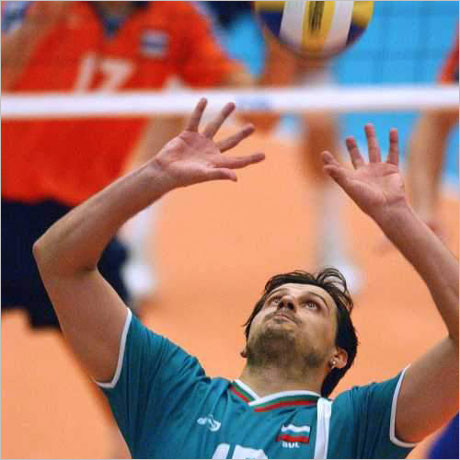
Photo credit: Facebook
SportsEdTV: You were the captain of team Bulgaria, so you were not only the hidden leader but also the “visible” one. How were you preparing for a match? How did you maintain the level?
Nikolay Ivanov: Before match, I would always try to shut down the emotions and to focus on the important things only; not to lose any energy. I have other colleagues, who are more extroverted, they like to have people around, to go have a cup of coffee, if the rules allow it. I was different, looking for tranquillity.
On the way to the hall, I would always try to observe my colleagues. To see what their current emotional state was. To look for something that would give me some jokers. This would allow me to have a clearer idea on the “emotional shape” of my colleagues. I believe that the good setter should be able to foresee how this shape would affect the efficiency of the spikers.
A setter should try to find ways to boost the spiker’s confidence. For example, when I was playing in Poland, there was this young colleague of mine, Igor Yudin. To him, it was very important how he would start in the match. What do I mean? When he wouldn’t start good, with 2-3 winning spikes, he would lose faith, and in these moments, it was difficult for him to get back on his feet. I decided that with him, I would always start in an easier way. With one-man block only, or to trick the opponent. To make sure that Igor would score the point. For him to feel the match, to enter the game motivated
SportsEdTV: How did you learn all this?
Nikolay Ivanov: There wasn’t anybody that had told me these things. Maybe, if somebody had come to me telling me these “secrets”, I would have reached an even higher level.
To me, it’s all about listening and observing.
There was a moment of my career, where I was the setter of the Bulgarian team, and I was playing in the Bulgarian league. My colleagues would go to play abroad, and when we got together in the summer in the national team, they would share with me what had happened. I was only listening and asking.
One thing is for sure, I have always tried when having talks with the coaches, to extract what was important for me and what I could use and apply. And always staying true to my character.
There were people along the way, who, of course, had helped me a lot. It is a matter of balance between listening and staying true to who you are.
SportsEdTV: How important is it for a setter to gain authority in the team? And how did you do it?
Nikolay Ivanov: Authority in this case would mean that your colleagues trust you and rely on you. It is very important.
It a combination of behaviour, work, consistency. You play a match or two during the week. But the other work, you need to do it from Monday to Friday. You have two trainings each day, and during all the process, you need to show the others that you are responsible, that you are constant hard worker.
You need to have the right approach to the process (approach to the match, the training, the colleagues, the coach staff, outside of the hall, approach to fans, journalists, to the cleaning personal, to everybody).
SportsEdTV: Yes, these are some fundamental human qualities, morals and values.
Nikolay Ivanov: Exactly. I have seen this during my whole life; I have been lucky enough to talk to many colleagues during the 90s, top players. And you see that the ones that have reached the heights as successful volleyball players, are also great people, who treat others differently and with respect. In addition, they attract others to follow their example.
SportsEdTV: Is this one of the keys to success in Volleyball?
Nikolay Ivanov: Success is combination of many factors. Being great leader is one of them, but it is also a combination of the right moment, luck and most importantly, to have worked hard for it. Winning depends on how well you are prepared. If you have done the things that you should, then there you will be more chances to win.
But Volleyball is more than that. It can give you a lot. You can become a player, a manager, a coach. Or you can be a fan who goes to see the match and have some positive emotions.

